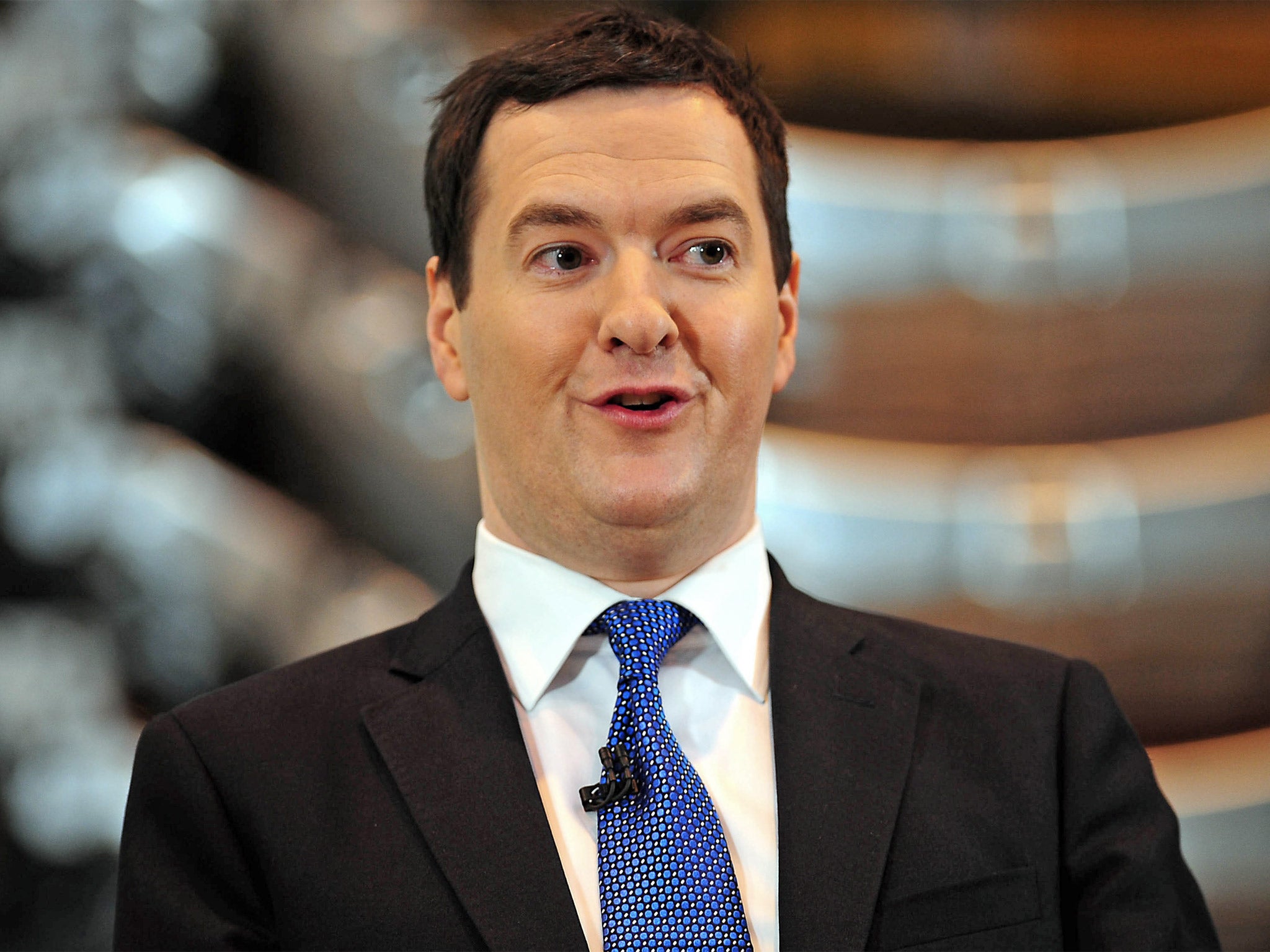Lib Dems accuse Tories of 'stealing' their policy as George Osborne prepares to approve above-inflation rise in minimum wage
The Conservatives opposed Labour's decision to bring in the minimum wage in 1999, predicting wrongly that it could cost two million jobs

Your support helps us to tell the story
From reproductive rights to climate change to Big Tech, The Independent is on the ground when the story is developing. Whether it's investigating the financials of Elon Musk's pro-Trump PAC or producing our latest documentary, 'The A Word', which shines a light on the American women fighting for reproductive rights, we know how important it is to parse out the facts from the messaging.
At such a critical moment in US history, we need reporters on the ground. Your donation allows us to keep sending journalists to speak to both sides of the story.
The Independent is trusted by Americans across the entire political spectrum. And unlike many other quality news outlets, we choose not to lock Americans out of our reporting and analysis with paywalls. We believe quality journalism should be available to everyone, paid for by those who can afford it.
Your support makes all the difference.George Osborne is ready to approve an above-inflation rise in the national minimum wage as the Conservatives seek to appeal to the low paid and shed their “party of the rich” image.
A day after the Chancellor announced plans for another £12bn of welfare cuts between 2015-17, Treasury sources talked up the prospect of a “real terms rise” in the £6.31-an-hour minimum wage this October.
The move is significant because the Conservatives opposed Labour's decision to bring in the minimum wage in 1999, predicting wrongly that it could cost two million jobs. The Tories have traditionally backed calls by business leaders to keep down the wages floor. But their planned U-turn reflects their concerns at being seen as “out of touch” with ordinary people hit by what Labour calls the “cost of living crisis.”
According to the Resolution Foundation think tank, the minimum wage is now at its lowest level since 2005 in real terms. It has fallen in value for the past five years, and by 5.2 per cent in real terms over this period. If it had been linked to inflation, it would now stand at £6.68 an hour. A five per cent increase this October would take it to £6.62 an hour.
The Government will not recommend a precise increase in the data it sends shortly to the independent Low Pay Commission, which will publish its recommendations in the spring.
But the Tories' hopes of reaping a political reward from the expected above-inflation rise were dealt a blow when Liberal Democrats accused them of “stealing” their policy. They pointed out that Vince Cable, the Lib Dem Business Secretary, who is responsible for the minimum wage, has already asked the commission to consider increasing its value in the medium term.
Mr Cable said: “The national minimum wage strikes a key balance between protecting the low paid and making sure they can find work. But as the economy starts to recover, the benefits of growth must be shared fairly and equally by everyone. This is why last September I asked the independent Low Pay Commission what economic conditions would be needed to allow for significant rises in the national minimum wage without damage to employment.”
Mr Cable promised that bigger fines for firms which do not pay their workers the legal minimum would be introduced this spring.
Tory moderates, worried that tough rhetoric about welfare cuts will harm the party's image among centre ground voters, are pressing for a rethink about the wages floor.
David Skelton, founder of the Renewal pressure group aimed at broadening the Tories' appeal in the North, said: “The Conservatives made a real mistake in opposing the introduction of the national minimum wage, which they're still paying for politically. They must be careful not to be on the wrong side of the argument again when it comes to low pay.
"An increase in the minimum wage would be the right thing to do. It would show that the Government understands the pressures the low paid are still facing. It would ensure that the benefits of growth reach everybody in society, genuinely help to 'make work pay' and, given the state pays millions to top up low pay with tax credits, would reduce the benefits bill."
Policy Exchange, a think tank with close links to David Cameron, is drawing up plans to ensure that a minimum wage rise would not cost jobs. Increasing it by 50p would save the Government an estimated £750m a year through higher tax revenues and lower benefit payments.
Conor D'Arcy, researcher at the Resolution Foundation, said: "After five years of decline the minimum wage has lost substantial value and as economic recovery begins to return it's important that it is strengthened once again to start making up that lost ground. The fact that all the main parties are now showing interest in doing this is very encouraging - but there is a long way to go before the minimum wage returns to its earlier levels."
Opinion polls show that only 16 per cent of low paid voters think that the Conservative Party is "on the side of people like me" and three quarters of all voters still say that the party is the "party of the rich."
Join our commenting forum
Join thought-provoking conversations, follow other Independent readers and see their replies
Comments